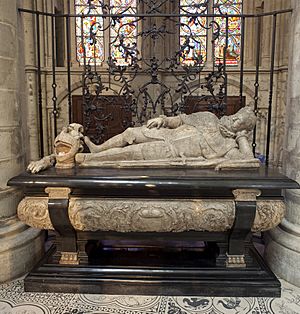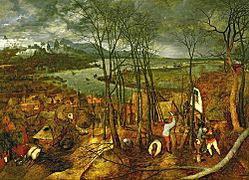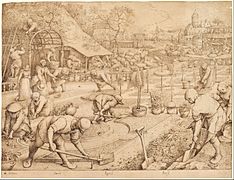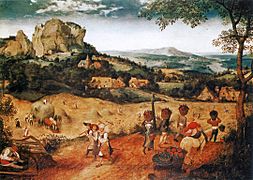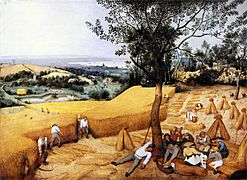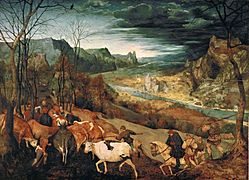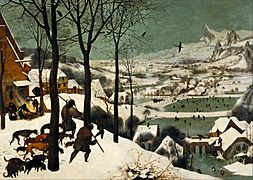Archduke Ernest of Austria facts for kids
Quick facts for kids Archduke Ernest |
|
|---|---|
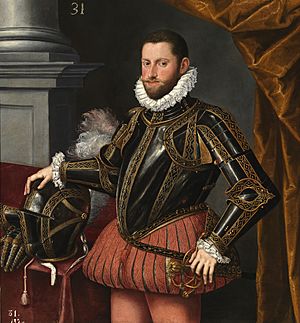
Portrait by Martino Rota c. 1580
|
|
| Born | 15 June 1553 Vienna |
| Died | 20 February 1595 (aged 41) Brussels |
| House | Habsburg |
| Father | Maximilian II, Holy Roman Emperor |
| Mother | Maria of Spain |
Archduke Ernest of Austria (German: Ernst von Österreich; 15 June 1553 – 20 February 1595) was an important prince from Austria. He was the son of Maximilian II, Holy Roman Emperor, and Maria of Spain. Ernest held several key positions during his life.
Contents
A Royal Life
Archduke Ernest was born in Vienna, a major city in Austria. He grew up with his brother, Rudolf II, Holy Roman Emperor. They both received their education at the royal court in Spain.
A Candidate for the Throne
Ernest was considered a possible king for Poland twice. This happened in 1573 and again in 1587. However, he was never chosen to rule Poland.
Governing Different Regions
From 1576, Ernest became a governor in the Archduchy of Austria. A governor is like a leader who manages a region for the main ruler. In this role, he supported the Counter-Reformation. This was a movement to strengthen the Catholic Church.
In 1590, Ernest took on another important job. He became the governor of Inner Austria. He served as a regent for his young cousin, Ferdinand. A regent is someone who rules a country when the rightful ruler is too young or unable to govern.
Later, from 1594 to 1595, he served as the Governor of the Spanish Netherlands. This area is now parts of Belgium, Luxembourg, and the Netherlands.
His Final Years
Archduke Ernest passed away in Brussels on February 20, 1595. After his death, his brother, Albert, took over his role in the Netherlands.
Art Collection
Archduke Ernest was also known for his love of art. He owned a famous series of paintings. These were called the Months of the Year cycle and were painted by Pieter Bruegel the Elder. One painting from this series, High Spring (showing April or May), is now lost.
Here are some of the paintings from his collection:
See also
 In Spanish: Ernesto de Austria para niños
In Spanish: Ernesto de Austria para niños
 | Valerie Thomas |
 | Frederick McKinley Jones |
 | George Edward Alcorn Jr. |
 | Thomas Mensah |


